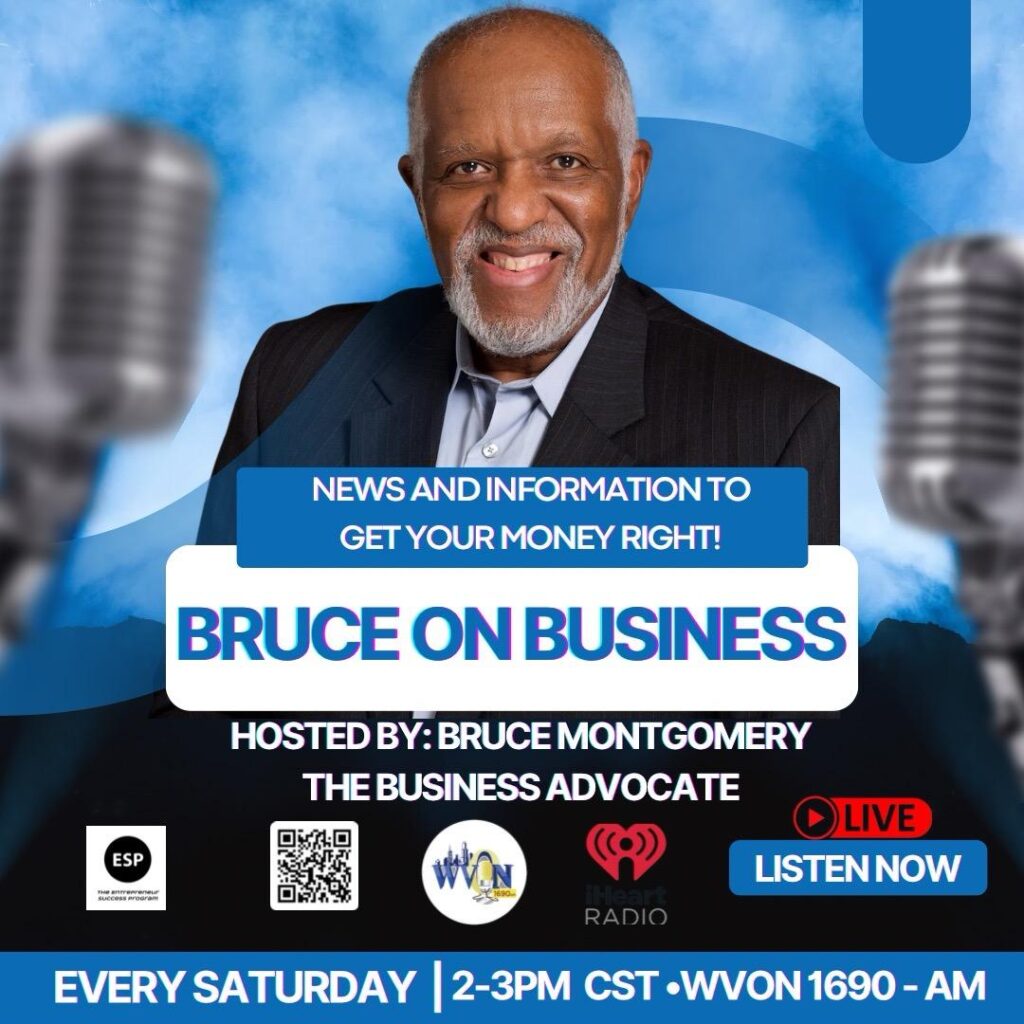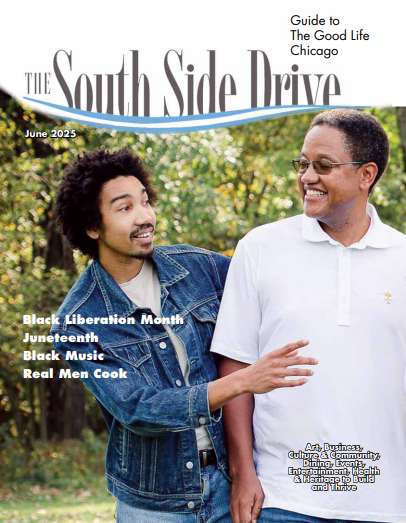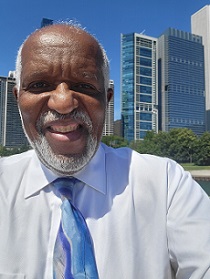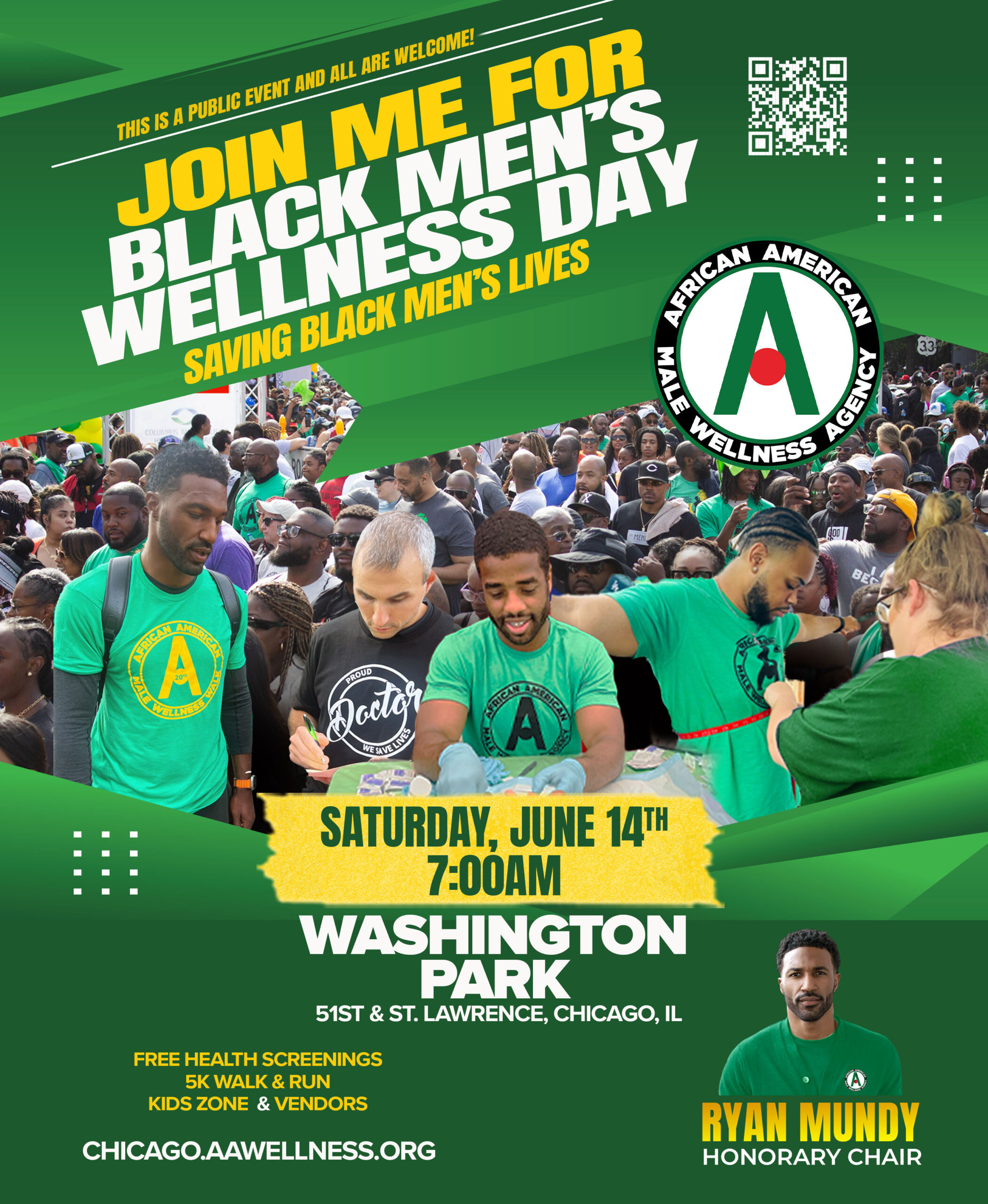A product of Chicago’s Southside, Bruce Montgomery graduated from the University of Chicago’s Lab School, spent one year at Hampton University in Virginia, and completed his undergraduate studies in journalism, marketing, and advertising at Northwestern University.
After college and a couple of years on LaSalle Street at the Chicago Board of Trade, he delved into the advertising industry. After a brief spin as account executive for a couple of ad agencies, he successfully partnered with his childhood friend, Paul David Wilson, musical genius and founder of Herschel Commercial. Bruce helped Paul Wilson successfully market his company to agencies such as Burrell, Vince Cullers, Leo Burnett, Foote, Cone & Belding, and others.
In spite of the successes with Herschel Commercial, Bruce still felt like he wanted to broaden his own horizons, and so he left Herschel and became involved in the area of telecommunications. He worked for several technology-based companies, computer companies, and software companies over the next thirty years and assumed other roles in technology, ultimately establishing his own IT consulting company.
After being recruited by Judith Russell, the Director of the Small Business Administration (SBA) to become a SCORE counselor for the SBA. Bruce began teaching SCORE workshops at the SBA office in downtown Chicago, (SCORE, Service Corps Of Retired Executives, provides mentorships to small businesses).
For the next ten years, Bruce taught the marketing workshop for the SCORE SBA office in downtown Chicago. He developed relationships with other organizations, such as the Minority Supplier Development / Council and the Chicago Urban League.
Bruce acknowledges Dr. Walter Massey, founding chairman of the University of Chicago Development Association, for helping him to navigate the tech world. “He was also the founder of the Chicago High Tech Association,” Bruce says, “and asked me to become involved with that effort.”
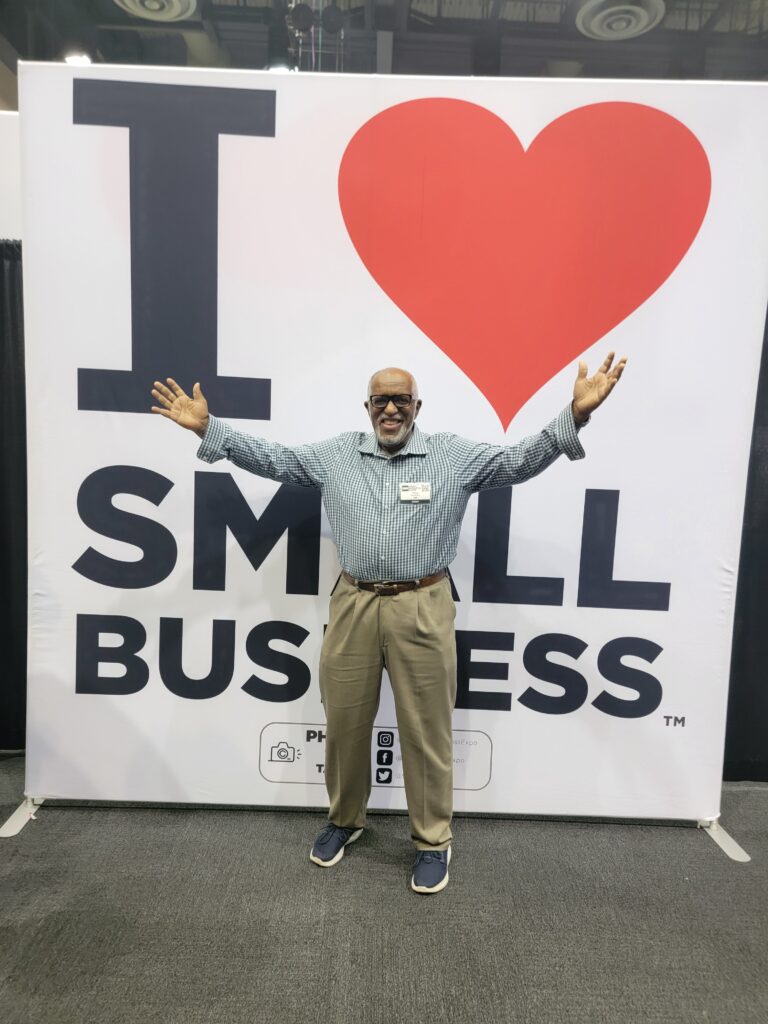
Bruce was getting noticed for his accomplishments in the tech world and Mayor Richard Daley asked him to serve with the Mayor’s Council of Technology Advisors, a program he was involved with for about ten years. Subsequently, Mayor Rahm Emanuel appointed him to be on the city of Chicago’s first Small Business Advisory Committee, where he got a chance to work with a lot of organizations to really begin to get entrepreneurship more connected to our neighborhoods.
Through his involvement with the Mayor’s Small Business Advisory Council under Rahm Emanuel, Bruce became connected with the Greater Englewood Community Development Corporation, where he volunteered as their Chief Technology Officer to bring technology programming to the Englewood community. “We established a small business incubator and tech center originally called Englewood Blue,” he says, “and we had a full-service Internet access and small business incubator facility on the fourth floor of the US Bank Building at 63rd and Halsted.” Eventually, Bruce began teaching small business workshops in collaboration with the national organization, Operation Hope. Over 200 businesses came through that Operation Hope small business entrepreneur program and many of those businesses are sprinkled around the Chicago area successfully doing business today.
In 2018, Governor Bruce Rauner appointed Bruce to the Fair Practices in Contracting Task Force, where he served under Chairman Willie Wilson. The task force produced a ground-breaking report on their finding that of the $15 billion Illinois spent annually on goods and services, Black suppliers only accounted for one percent. That report called for the creation of a commission to ensure that all small businesses got more business with the state of Illinois.
The report was also shared with candidate JB Pritzker and his transition team, which led to the creation of the Commission on Equity and Inclusion, and in 2022, Governor Pritzker appointed Bruce to that Commission. The effort of that commission is focused on making sure small and diverse businesses get their fair share of government contracts for goods and services across all areas.
The Commission on Equity and Inclusion oversees the Business Enterprise Program (BEP) which is the certification program in Illinois. Right now there are about five thousand businesses that are certified as BEP firms in the state of Illinois. Meetings of the Commission are held on the third Wednesday of each month. Bruce states, “We are doing a significant amount of outreach and collaborating with public and private organizations to make sure people are aware that there is no charge to be certified as a small or minority business with the state of Illinois, and to help businesses understand that the opportunities are for the kinds of goods and services they offer.”
Recently, Bruce brought his expertise to the airwaves. He explains, “After the George Floyd murder, there was a lot of community unrest and a lot of frustration around the lack of Black business ownership. So Melody Span Cooper, the owner of Radio Station WVON, asked me to do some programming on the radio around the issue of economic empowerment.” That culminated into a regular weekly show on WVON, called “Bruce on Business,” which airs every Saturday from 2 pm to 3 pm. The show, which has been airing for two years, focuses on Black entrepreneurship, Black business ownership, Black innovation, and Black business successes that are going on in Chicago right now.
Bruce says that one of the greatest experiences in his life was transitioning from corporate to community because of his good friend Yvette Moyo. “Yvette and Kofi Moyo were doing the MOBE Conference (Marketing Opportunities in Business and Entertainment),” he said, “That was the key transition for me out of corporate and getting back engaged with my community, not only here in Chicago, but nationally. And I was asked to come on to be a part of the MOBE family, specifically to establish the MOBE technology effort, which is called MOBE IT..
The MOBE Symposium is known for opening doors and business building and having just returned from helping to launch the White House Briefing on Blacks, Bruce was asked to be a project leader. As a result, tremendous inroads were made with MOBE IT and innovators throughout the country.
A couple of years ago, Bruce started a nonprofit organization called the Entrepreneur Success Program (ESP). He explains, “I started the program because I believe Black ownership and Black innovation are the keys to us getting out of our own way and letting the creativity that naturally wells up inside of us find expression.” He continues, “There wasn’t anything like the Internet back in the 70’s and 80’s, but now that we have mobile, Internet, and this coming AI revolution, this is leveling the playing field like never before. So my plan through the Entrepreneur Success Program is to evangelize, and I’m fortunate enough to connect with other Black innovators from around the country to bring innovation out of our urban and rural communities into the mainstream and see the next wave of Black-owned products and services reach the billion dollar level, and we as a people need to know that a billion dollars is more than doable. It’s our birthright.”
“The one thing that I’ve focused myself on changing,” says Bruce, is the ‘I’ve got mine, you get yours’ attitude. I want to change that. I want to say that if I know people, you know people. If I’ve got a door open, I want you to come in that door. If you need a contact and don’t have that contact, I probably have that contact and I’ll gladly share that contact with you.”
Bruce believes that the next wave of uplift in our community is going to come from entrepreneurship and innovation and people breaking down barriers, just like they’re doing right now, today.
